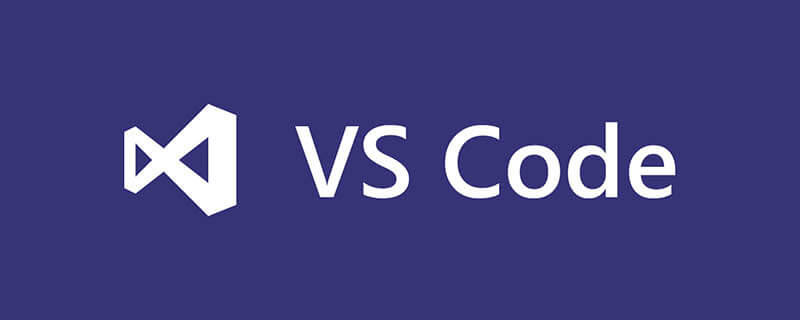 Backend Development
Backend Development C#.Net Tutorial
C#.Net Tutorial What novice programmers should know about the difference between C language and C++
What novice programmers should know about the difference between C language and C++
##What novice programmers should know about C language The difference between C
When they first learned programming, did many people think that C language and C were the same? Today I will introduce in detail the differences between the following C language and C. Let us learn together.1. Keywords
Blue marks are C language keywords. C inherits all keywords of C language. The following red marks are C that contain but C Keywords that the language does not have (according to C 98, C contains 63 keywords)
2. Source file differences C language file suffix is. c,c The original file name suffix is .cpp
If nothing is given when creating the source file, the default is .cpp
3. The return value is different
In C language, if a function does not specify a return value type , the default is int type, and returns a random number, usually 0XCCCCCCCC
In C, if the function has no return value, it must be specified as void type, otherwise the compilation cannot pass
4. Parameter list
In C In the language, when a function does not have a specified parameter list, it can receive any number of parameters by default
In C, there is strict parameter type detection. Functions without a parameter list default to void and do not receive any parameters.
Default parameters
Default parameters are function parameters that specify a default value when declared and defined. When calling this function, if no actual parameters are specified, the default values are used, otherwise the specified actual parameters are used.
The following code:
#include<iostream>using namespace std;void test(int a = 1)
{ cout << a << endl;
}int main()
{
test();
test(10);//输出的结果是1
return 0;//函数输出结果是10}The default parameters are divided into two categories, one is full default and the other is semi-default. The first is full default. All parameters of full default parameters have default values. If no parameters are passed manually, the compiler will use the parameters in the default parameter list. But it is worth noting here that if only some parameters are passed when passing parameters, the value will be matched from left to right.
Code example:
#include<iostream>using namespace std;void test(int a = 1,int b = 2, int c = 3)
{ cout << a << " " << b << " " << c << endl;
}int main()
{
test();//1 2 3
test(10);//10 2 3
test(10, 20);//10 20 3
test(10, 20, 30);//10 20 30
return 0;
}
Semi-default parameter code demonstration:
void test(int a ,int b = 2, int c = 3)
{ cout << a << " " << b << " " << c << endl;
}void test1(int a, int b, int c = 3)
{ cout << a << " " << b << " " << c << endl;
}The test function passes at least one parameter, and the test1 function at least Only by passing two parameters can the function run normally.
Note: Parameters with default values must be placed at the end of the parameter list. Because parameters are passed from right to left.
Default parameters cannot appear in both function declaration and definition, only one of them can be left.
The default value must be a constant or a global
variable.
C language does not support default.
5. C supports function overloading, but C language does not support it. In actual development, sometimes we need to implement several functions with similar functions, but some details are different. For example, if we want to exchange the values of two variables, which have multiple types, such as int, float, char, bool, etc., we need to pass the address of the variable into the function through parameters. In C language, programmers often need to design three functions with different names, and their function prototypes are similar to the following:
void swap1(int *a, int *b); //交换 int 变量的值 void swap2(float *a, float *b); //交换 float 变量的值 void swap3(char *a, char *b); //交换 char 变量的值 void swap4(bool *a, bool *b); //交换 bool 变量的值But in C, this is completely unnecessary. C allows multiple functions to have the same name as long as their parameter lists are different. This is function overloading. With overloading, a function name can be used for multiple purposes.
The parameter list is also called parameter signature, including the type of parameter, the number of parameters and the order of parameters. As long as there is one difference, it is called a different parameter list. #include <iostream>using namespace std;//交换 int 变量的值void Swap(int *a, int *b){int temp = *a;
*a = *b;
*b = temp;
}//交换 float 变量的值void Swap(float *a, float *b){float temp = *a;
*a = *b;
*b = temp;
}//交换 char 变量的值void Swap(char *a, char *b){char temp = *a;
*a = *b;
*b = temp;
}//交换 bool 变量的值void Swap(bool *a, bool *b){char temp = *a;
*a = *b;
*b = temp;
}int main(){//交换 int 变量的值int n1 = 100, n2 = 200;
Swap(&n1, &n2);cout<<n1<<", "<<n2<<endl;//交换 float 变量的值float f1 = 12.5, f2 = 56.93;
Swap(&f1, &f2);cout<<f1<<", "<<f2<<endl;//交换 char 变量的值char c1 = 'A', c2 = 'B';
Swap(&c1, &c2);cout<<c1<<", "<<c2<<endl;//交换 bool 变量的值bool b1 = false, b2 = true;
Swap(&b1, &b2);cout<<b1<<", "<<b2<<endl;return 0;
}
Run results:
200, 100 56.93, 12.5 B, A 1, 0
Overloading means within a scope (same class, same namespace, etc. ) has multiple functions with the same name but different parameters. The result of overloading is that a function name has multiple uses, making naming more convenient (in medium and large projects, naming variables, functions, and classes is a vexing problem) and calling more flexible. When using overloaded functions, the functions of the functions with the same name should be the same or similar. Do not use the same function name to implement completely unrelated functions. Although the program can run, the readability is not good and makes people confused. I feel baffled.Note that different parameter lists include different numbers, types, or orders of parameters. It is not acceptable to just have different parameter names. Function return values cannot be used as a basis for overloading.
Rules for overloading functions:
(1) The function names must be the same.
(2) The return types of functions can be the same or different.
(3)仅仅返回类型不同不足以成为函数的重载。
6、指针和引用
C语言中函数传参方式有两种:传值和传址
以传值方式,在函数调用过程中会生成一份临时变量用形参代替,最终把实参的值传递给新分配的临时形参。它的优点是避免了函数调用的副作用,却无法改变形参的值。如果要改变实参的值,只能通过指针传递。
指针可以解决问题,但是不安全,因此在C++中引入了引用。
引用:引用不是新定义的一个变量,他是原变量的一个别名,编译器不会为引用变量开辟空间,它和他引用的变量共用同一块内存空间。
类型& 变量(对象名)=引用变量
int &num1=num0;
引用特性;:
(1)引用定义时必须初始化
(2)一个变量可以有多个引用
(3)引用一旦绑定一个实体就不能改变为其他变量的引用
//指针和引用的区别
引用不可以为空,但指针可以为空
引用不可以改变指向,对一个对象”至死不渝”;但是指针可以改变指向,而指向其它对象
引用的大小是所指向的变量的大小,因为引用只是一个别名而已;指针是指针本身的大小,4个字节。
7、命名空间
在C++中,变量、函数和类都是大量存在的,这些变量、函数和类的名称将都存在于全局命名空间中,会导致很多冲突,使用命名空间的目的是对标识符的名称进行本地化,以避免命名冲突或者名字污染,namespace关键字的出现就是解决这种问题。而C语言中没有。
8、输入与输出
cout代表c++的输出流
cin代表c++的输入流
它们都是在头文件“iostream”中定义。
“cout”必须与”在一条语句中可以多次使用“如:cout
#include <iostream>using namespace std;int main()
{int a,b;cout<<"请输入a,b的值"<<endl;cin>>a>>b;cout<<"输出a的值"<<a<<"输出b的值"<<b<<endl;return 0;
}
感谢大家的阅读,大家现在知道C语言和C++的区别了吗?
本文转自:https://blog.csdn.net/qq_39539470/article/details/81268916
推荐教程:《C语言》
The above is the detailed content of What novice programmers should know about the difference between C language and C++. For more information, please follow other related articles on the PHP Chinese website!
 (超详细)VScode中配置C语言环境的方法Dec 05, 2022 pm 07:05 PM
(超详细)VScode中配置C语言环境的方法Dec 05, 2022 pm 07:05 PMVScode中怎么配置C语言环境?下面本篇文章给大家介绍一下VScode配置C语言环境的方法(超详细),希望对大家有所帮助!
 c语言中node是什么意思Jul 06, 2022 pm 03:51 PM
c语言中node是什么意思Jul 06, 2022 pm 03:51 PM在C语言中,node是用于定义链表结点的名称,通常在数据结构中用作结点的类型名,语法为“struct Node{...};”;结构和类在定义出名称以后,直接用该名称就可以定义对象,C语言中还存在“Node * a”和“Node* &a”。
 c语言怎么将数字转换成字符串Jan 04, 2023 pm 03:20 PM
c语言怎么将数字转换成字符串Jan 04, 2023 pm 03:20 PMc语言将数字转换成字符串的方法:1、ascii码操作,在原数字的基础上加“0x30”,语法“数字+0x30”,会存储数字对应的字符ascii码;2、使用itoa(),可以把整型数转换成字符串,语法“itoa(number1,string,数字);”;3、使用sprintf(),可以能够根据指定的需求,格式化内容,存储至指针指向的字符串。
 c语言开根号运算符是什么Mar 06, 2023 pm 02:39 PM
c语言开根号运算符是什么Mar 06, 2023 pm 02:39 PM在c语言中,没有开根号运算符,开根号使用的是内置函数“sqrt()”,使用语法“sqrt(数值x)”;例如“sqrt(4)”,就是对4进行平方根运算,结果为2。sqrt()是c语言内置的开根号运算函数,其运算结果是函数变量的算术平方根;该函数既不能运算负数值,也不能输出虚数结果。
 c语言数组如何初始化Jan 04, 2023 pm 03:36 PM
c语言数组如何初始化Jan 04, 2023 pm 03:36 PMC语言数组初始化的三种方式:1、在定义时直接赋值,语法“数据类型 arrayName[index] = {值};”;2、利用for循环初始化,语法“for (int i=0;i<3;i++) {arr[i] = i;}”;3、使用memset()函数初始化,语法“memset(arr, 0, sizeof(int) * 3)”。
 c语言合法标识符的要求是什么Aug 27, 2020 pm 01:47 PM
c语言合法标识符的要求是什么Aug 27, 2020 pm 01:47 PMc语言合法标识符的要求是:1、标识符只能由字母(A~Z, a~z)、数字(0~9)和下划线(_)组成;2、第一个字符必须是字母或下划线,不能是数字;3、标识符中的大小写字母是有区别的,代表不同含义;4、标识符不能是关键字。
 c语言中源文件编译后生成什么文件Nov 23, 2022 pm 07:44 PM
c语言中源文件编译后生成什么文件Nov 23, 2022 pm 07:44 PMc语言编译后生成“.OBJ”的二进制文件(目标文件)。在C语言中,源程序(.c文件)经过编译程序编译之后,会生成一个后缀为“.OBJ”的二进制文件(称为目标文件);最后还要由称为“连接程序”(Link)的软件,把此“.OBJ”文件与c语言提供的各种库函数连接在一起,生成一个后缀“.EXE”的可执行文件。
 c语言怎么计算n的阶乘Jan 04, 2023 pm 03:18 PM
c语言怎么计算n的阶乘Jan 04, 2023 pm 03:18 PMc语言计算n的阶乘的方法:1、通过for循环计算阶乘,代码如“for (i = 1; i <= n; i++){fact *= i;}”;2、通过while循环计算阶乘,代码如“while (i <= n){fact *= i;i++;}”;3、通过递归方式计算阶乘,代码如“ int Fact(int n){int res = n;if (n > 1)res...”。


Hot AI Tools

Undresser.AI Undress
AI-powered app for creating realistic nude photos

AI Clothes Remover
Online AI tool for removing clothes from photos.

Undress AI Tool
Undress images for free

Clothoff.io
AI clothes remover

AI Hentai Generator
Generate AI Hentai for free.

Hot Article

Hot Tools

mPDF
mPDF is a PHP library that can generate PDF files from UTF-8 encoded HTML. The original author, Ian Back, wrote mPDF to output PDF files "on the fly" from his website and handle different languages. It is slower than original scripts like HTML2FPDF and produces larger files when using Unicode fonts, but supports CSS styles etc. and has a lot of enhancements. Supports almost all languages, including RTL (Arabic and Hebrew) and CJK (Chinese, Japanese and Korean). Supports nested block-level elements (such as P, DIV),

Notepad++7.3.1
Easy-to-use and free code editor

MinGW - Minimalist GNU for Windows
This project is in the process of being migrated to osdn.net/projects/mingw, you can continue to follow us there. MinGW: A native Windows port of the GNU Compiler Collection (GCC), freely distributable import libraries and header files for building native Windows applications; includes extensions to the MSVC runtime to support C99 functionality. All MinGW software can run on 64-bit Windows platforms.

Atom editor mac version download
The most popular open source editor

SublimeText3 Linux new version
SublimeText3 Linux latest version





